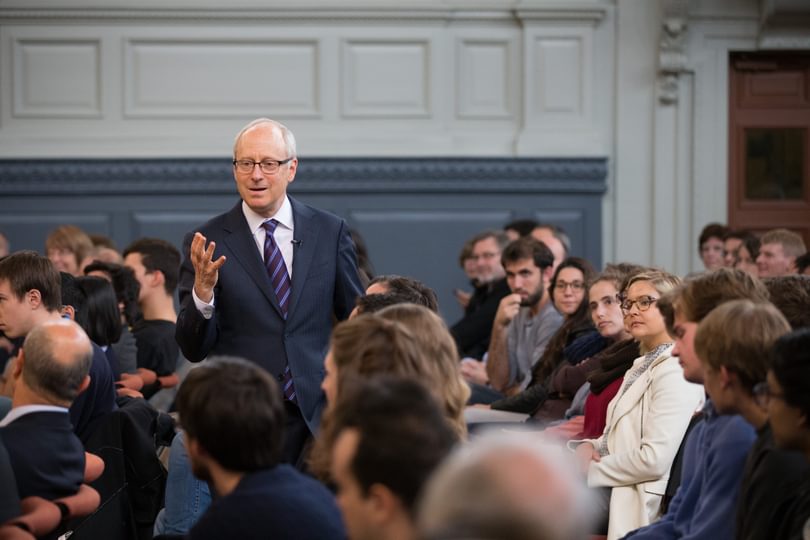
In his ‘Markets and Morals’ lecture at the Sheldonian Theatre, political philosopher Professor Michael Sandel dissected our relationship with markets, arguing that giving everything a price had led to widespread social separation that was damaging to democracy.
Professor Sandel, Anne T. and Robert M. Bass Professor of Government Theory at Harvard University and author of ‘What Money Can’t Buy: The Moral Limits of Markets’, quizzed the audience on a series of scenarios - including carbon offsetting and cash incentives for losing weight - that pitched moral attitudes against efficiency and market rationale.
Reflecting on the growing control of markets over societies, he said: “Reagan and Thatcher introduced the idea that market mechanisms are the primary instruments for achieving the public good. When the financial crisis came many of us assumed that now finally would come a robust public debate about the proper reach of money and markets in society. But it came and went and we haven’t seen in democratic societies a more fundamental debate about where markets serve the public good and where they don’t belong.”
He continued: “Many economists assume that markets are inert, that they don’t change the value or meaning of the goods being exchanged. That might be true for a television but it might not be true when markets begin to govern health, education, family life, the environment.”
Calling for a debate on the “utilitarian idea that it’s possible to translate all values, all goods into a single uniform measure”, he said that people today tended to shrink from public deliberations on the meaning and purpose of goods and products, and on moral and spiritual questions about “the good life”.
“It’s a mistake to think that markets can decide these things neutrally,” he warned. “Against a backdrop of rising inequality, pricing everything has led to a kind of social separation. Those who are affluent and those who are less well-off work and shop and play in different places. This is damaging to democracy and it’s not even a satisfying way to live. Democracy doesn’t require perfect equality but it does need us to share a common life. This is how we come to abide our differences and care for the common good.”
He concluded: “It isn’t only an economic question but a question of how we live together. It’s a question of whether we want a society where everything is up for sale, or are there certain moral and civic goods that markets don’t honour and money can’t buy?”